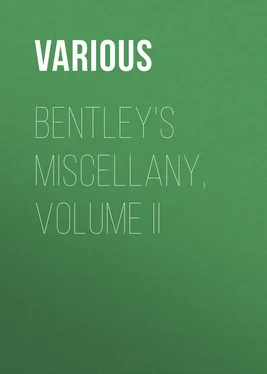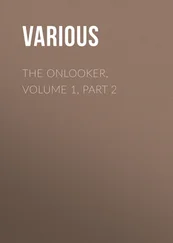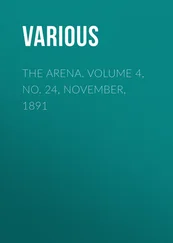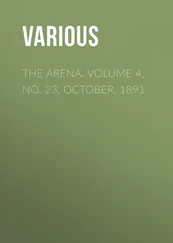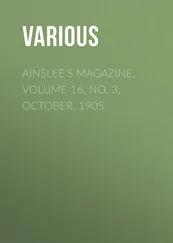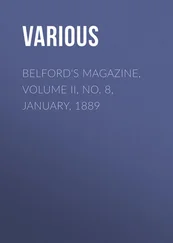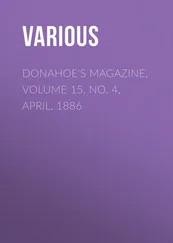Various - Bentley's Miscellany, Volume II
Здесь есть возможность читать онлайн «Various - Bentley's Miscellany, Volume II» — ознакомительный отрывок электронной книги совершенно бесплатно, а после прочтения отрывка купить полную версию. В некоторых случаях можно слушать аудио, скачать через торрент в формате fb2 и присутствует краткое содержание. Издательство: Иностранный паблик, Жанр: foreign_antique, foreign_prose, на английском языке. Описание произведения, (предисловие) а так же отзывы посетителей доступны на портале библиотеки ЛибКат.
- Название:Bentley's Miscellany, Volume II
- Автор:
- Издательство:Иностранный паблик
- Жанр:
- Год:неизвестен
- ISBN:нет данных
- Рейтинг книги:3 / 5. Голосов: 1
-
Избранное:Добавить в избранное
- Отзывы:
-
Ваша оценка:
- 60
- 1
- 2
- 3
- 4
- 5
Bentley's Miscellany, Volume II: краткое содержание, описание и аннотация
Предлагаем к чтению аннотацию, описание, краткое содержание или предисловие (зависит от того, что написал сам автор книги «Bentley's Miscellany, Volume II»). Если вы не нашли необходимую информацию о книге — напишите в комментариях, мы постараемся отыскать её.
Bentley's Miscellany, Volume II — читать онлайн ознакомительный отрывок
Ниже представлен текст книги, разбитый по страницам. Система сохранения места последней прочитанной страницы, позволяет с удобством читать онлайн бесплатно книгу «Bentley's Miscellany, Volume II», без необходимости каждый раз заново искать на чём Вы остановились. Поставьте закладку, и сможете в любой момент перейти на страницу, на которой закончили чтение.
Интервал:
Закладка:
He who has slain him addresses his corse as that of the "noble County Paris," with a kindly remembrance that he was kinsman of a friend slain in Romeo's own cause. Nothing can be more fervent, more honourable, or more delicate than his devoted and considerate wooing. His grief at the loss of Juliet is expressed in few words; but its sincerity is told by his midnight and secret visit to the tomb of her whom living he had honoured, and on whom, when dead, he could not restrain himself from lavishing funereal homage. Secure of the favour of her father, no serious objection could be anticipated from herself. When questioned by her mother, she readily promises obedience to parental wishes, and goes to the ball determined to "look to like, if looking liking move." Everything glides on in smooth current till the appearance of him whose presence is deadly. Romeo himself is a most reluctant visitor. He apprehends that the consequences of the night's revels will be the vile forfeit of a despised life by an untimely death, but submits to his destiny. He foresees that it is no wit to go, but consoles himself with the reflection that he "means well in going to this mask." His intentions, as usual, are good; and, as usual, their consequences are ruinous.
He yields to his passion, and marries Juliet. For this hasty act he has the excuse that the match may put an end to the discord between the families. Friar Lawrence hopes that
"this alliance may so happy prove
To turn your households' rancour into love."
It certainly has that effect in the end of the play, but it is by the suicidal deaths of the flower and hope of both families. Capulet and Montague tender, in a gloomy peace the hands of friendship, over the untimely grave of the poor sacrifices to their enmity. Had he met her elsewhere than in her father's house, he might have succeeded in a more prosperous love. But there his visit is looked upon by the professed duellist Tybalt, hot from the encounter of the morning, and enraged that he was baulked of a victim, as an intrusion and an insult. The fiery partisan is curbed with much difficulty by his uncle; and withdraws, his flesh trembling with wilful choler, determined to wreak vengeance at the first opportunity on the intruder. It is not long before the opportunity offers. Vainly does Romeo endeavour to pacify the bullying swordsman, – vainly does he protest that he loves the name of Capulet, – vainly does he decline the proffered duel. His good intentions are again doomed to be frustrated. There stands by his side as mad-blooded a spirit as Tybalt himself, and Mercutio, all unconscious of the reasons why Romeo refuses to fight, takes up the abandoned quarrel. The star of the unlucky man is ever in the ascendant. His ill-omened interference slays his friend. Had he kept quiet, the issue might have been different; but the power that had the steerage of his course had destined that the uplifting of his sword was to be the signal of death to his very friend. And when the dying Mercutio says, "Why the devil came you between us? I was hurt under your arm;" he can only offer the excuse, which is always true, and always unavailing, "I thought all for the best." All his visions of reconciliation between the houses are dissipated. How can he now avoid fighting with Tybalt? His best friend lies dead, slain in his own quarrel, through his own accursed intermeddling; and the swaggering victor, still hot from the slaughter, comes back to triumph over the dead. Who with the heart and spirit of a man could under such circumstances refrain from exclaiming,
"Away to heaven, respective lenity!
And fire-eyed fury be my conduct now."
Vanish gentle breath, calm words, knees humbly bowed! – his weapon in an instant glitters in the blazing sun; and as with a lightning flash, – as rapidly and resistlessly, – before Benvolio can pull his sword from the scabbard, Tybalt, whom his kindred deemed a match for twenty men, is laid by the side of him who but a moment before had been the victim of his blade. What avails the practised science of the duellist, the gentleman of the very first house, of the first and second cause! – how weak is the immortal passado, or the punto reverso, the hay, or all the other learned devices of Vincent Saviola, against the whirlwind rage of a man driven to desperation by all that can rouse fury or stimulate hatred! He sees the blood of his friend red upon the ground; the accents of gross and unprovoked outrage ring in his ears; the perverse and obstinate insolence of a bravo confident in his skill, and depending upon it to insure him impunity, has marred his hopes; and the butcher of the silk button has no chance against the demon which he has evoked. "A la stoccata" carries it not away in this encounter; but Romeo exults not in his death. He stands amazed, and is with difficulty hurried off, exclaiming against the constant fate which perpetually throws him in the way of misfortune. Well, indeed, may Friar Lawrence address him by the title of "thou fearful man!" – as a man whose career through life is calculated to inspire terror. Well may he say to him that
"Affliction is enamour'd of thy parts,
And thou art wedded to calamity."
And slight is the attention which Romeo pays to the eloquent arguments by which it is proved that he had every reason to consider himself happy. When the friar assures him that the nurse may think it a discourse of learning and good counsel, fit to detain an enraptured auditor all the night. Romeo feels it in his case to be an idle declamation, unworthy of an answer.
"A pack of blessings lights upon thy back,
Happiness courts thee in her best array,"
The events which occur during his enforced absence, the haste of Paris to be wedded, the zeal of old Capulet in promoting the wishes of his expected son-in-law, the desperate expedient of the sleeping-draught, 8the accident which prevented the delivery of the friar's letter, the officious haste of Balthazar to communicate the tidings of Juliet's burial, are all matters out of his control. But the mode of his death is chosen by himself; and in that he is as unlucky as in everything else. Utterly loathing life, the manner of his leaving it must be instantaneous. He stipulates that the poison by which he is to die shall not be slow of effect. He calls for
"such soon-speeding gear
As will disperse itself through all the veins,
That the life-weary taker may fall dead."
He leaves himself no chance of escape. Instant death is in his hand; and, thanking the true apothecary for the quickness of his drugs, he scarcely leaves himself a moment with a kiss to die. If he had been less in a hurry, – if he had not felt it impossible to delay posting off to Verona for a single night, – if his riding had been less rapid, or his medicine less sudden in its effect, he might have lived. The friar was at hand to release Juliet from her tomb the very instant after the fatal phial had been emptied. That instant was enough: the unlucky man had effected his purpose just when there was still a chance that things might be amended. Those who wrote the scene between Romeo and Juliet which is intended to be pathetic, after her awakening and before his death, quite mistake the character of the hero of the play. I do not blame them for their poetry, which is as good as that of second-rate writers of tragedy in general; and think them, on the whole, deserving of our commendation for giving us an additional proof how unable clever men upon town are to follow the conceptions of genius. Shakspeare, if he thought it consistent with the character which he had with so much deliberation framed, could have written a parting scene at least as good as that with which his tragedy has been supplied; but he saw the inconsistency, though his unasked assistants did not. They tell us they did it to consult popular taste. I do not believe them. I am sure that popular taste would approve of a recurrence to the old play in all its parts; but a harlotry play-actor might think it hard upon him to be deprived of a "point," pointless as that point may be.
Читать дальшеИнтервал:
Закладка:
Похожие книги на «Bentley's Miscellany, Volume II»
Представляем Вашему вниманию похожие книги на «Bentley's Miscellany, Volume II» списком для выбора. Мы отобрали схожую по названию и смыслу литературу в надежде предоставить читателям больше вариантов отыскать новые, интересные, ещё непрочитанные произведения.
Обсуждение, отзывы о книге «Bentley's Miscellany, Volume II» и просто собственные мнения читателей. Оставьте ваши комментарии, напишите, что Вы думаете о произведении, его смысле или главных героях. Укажите что конкретно понравилось, а что нет, и почему Вы так считаете.
